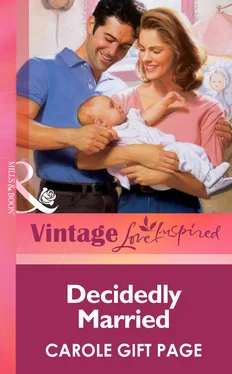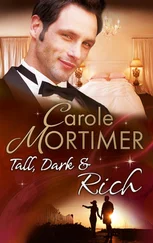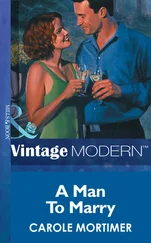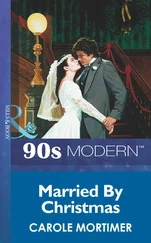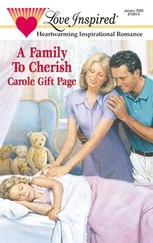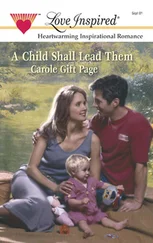Julie spent the rest of her Saturday painting watercolors—two bright, churning seascapes taken from her own photographs of the Pacific Ocean off Laguna Beach at sunset, and a rather prosaic still life of garden flowers in an antique ceramic vase.
Painting was another of Julie’s weekend rituals, like the phone calls to her father. The calls were made out of a long-standing sense of obligation, but painting sprang from Julie’s deepest yearnings to express creatively all the multilayered feelings in her heart for which she had no words. Painting was tied to Julie’s innermost nature; it was as much a part of her as breathing, and just as necessary.
In college she had dreamed of receiving her degree in fine art and then studying painting in Europe for a year or two before launching her professional career in New York, perhaps even in New York City’s Greenwich Village. She had hoped to work possibly as an illustrator for a national magazine, or more likely to freelance, conducting workshops and exhibiting her own one-woman shows until she found a prestigious gallery to represent her. She had known it would take years of dedicated hard work to build her name and reputation as an artist, but she’d been willing to endure whatever it took.
But that was all before Michael and Katie. Seventeen long years ago. After learning she was pregnant and agreeing to marry Michael, she knew his education would need to take top priority. So she quit college and got a nine-to-five, bread-and-butter job to pay the bills, and her art career became “the road not taken.” She had accepted her fate and taken solace in being a weekend painter, but always at the back of her mind was the nagging question, What would I have accomplished as an artist if Michael and I had never—She never finished the question—at least not in so many words, for it seemed somehow a betrayal of both Michael and Katie.
And if there was one thing Julie was, it was loyal. She loved her husband and daughter and couldn’t imagine life without them. Surely they were more precious than any imagined career success. Seventeen years ago she had chosen the two of them, and she would make the same choice all over again, without hesitation. And yet, in spite of her commitment and loyalty to her husband and daughter, in spite of what she had given up for them, lately they both seemed to be slipping away from her…irretrievably away.
As usual on Sunday morning Julie and Michael attended services at Bethany Chapel, where they had been members for more years than Julie could recall. Katie was there in the congregation, too, sitting a few aisles away with Jesse. It was the first time she had brought him to a morning service. She was obviously ready to let the world know she had a new boyfriend.
From the corner of her eye Julie could see the two of them whispering together, Katie touching his shoulder and his hair in the intimate, possessive way women let others know they’ve found their man. Be careful, Katie, Julie wanted to shout. Don’t throw away your future on this boy. You’ll regret it for the rest of your life!
But there’s nothing I can say, Julie realized. The distance between us is too great, in every way.
“She never sits with us anymore,” Julie whispered to Michael, as if she expected him to offer a consoling word.
He merely gave her that look that said, What do you expect? She’s a teenager!
Julie knew, of course, with or without Jesse, Katie would be sitting elsewhere with her friends; it had been years since she had sat in church with her parents. She was too old now, she would insist, practically an adult. Julie never argued with her about it. And as Michael was quick to remind her now in a confidential whisper, “You know how it is, Jewel. Teenagers don’t like to be seen in public with their parents unless it’s absolutely unavoidable.”
But Julie missed having her daughter beside her, their arms touching lightly as they shared a Bible during the Scripture reading; she missed hearing Katie’s light, clear soprano when the congregation sang hymns and praise choruses.
But it wasn’t just Katie she missed. Something else was lacking, too. Julie couldn’t quite put her finger on it. Often when she left church she felt the same inexplicable sadness she felt after hanging up the phone with her father, as if she had gone through the motions but hadn’t quite connected.
Where was God during church? Why did she always feel as if she were worshiping Him from afar? Surely if she were going to feel close to Him, it should be here.
Perhaps if I were worshiping God in some glorious, centuries-old cathedral in Europe, something wonderfully Gothic or Byzantine, like I studied in art history, I would feel God’s presence. How different that would be from these modern, sterile, utilitarian church buildings.
Bethany Chapel was typical of so many in Southern California these days. The structure was fairly new, still smelled new, in fact—a sprawling stucco building, attractive in a spare, serviceable sort of way, but nothing like those exquisite European cathedrals, nor even like the little country church Julie had gone to growing up.
Her childhood church had possessed lovely stained-glass windows showing Jesus the Good Shepherd and Jesus with His disciples at the Last Supper. It was a quaint, picture-postcard church complete with a steeple and belfry. In sharp contrast, Bethany Chapel’s huge all-purpose auditorium served as both sanctuary and gymnasium, and from the outside it could be mistaken for a school or even an office building Still, it was better than the public school gymnasium they had met in for years until the money was raised to build their own facility.
Julie felt a stab of guilt as Pastor Brady fleetingly met her gaze from the pulpit. He was a genteel, middle-aged man with a witty, urbane manner, impeccable taste and flawlessly styled graying hair. He had a way of looking right through you so you were convinced he had crafted his sermon just for you. He was looking at Julie that way now. Did he realize her mind was wandering? She relaxed a little as he cleared his throat and moved his discerning eyes over the rest of the congregation. What had he said? Was he waiting for some response? Shamefacedly she realized he was halfway through his sermon and she hadn’t heard a word.
In his sonorous tone he was saying, “We are going to look today at God’s most significant commands to His children. These verses are found several times in both the Old and New Testaments. That shows us how vitally important God considers these instructions…”
But even as her fingers moved automatically through the rustling, tissue-thin pages to the Gospel of Mark, Julie’s thoughts turned inward again, meandering, traveling to a far corner of her consciousness. She was facing an inner crisis, something she couldn’t even articulate, but it had been building for days. A dark, ominous cloud had settled over her soul; the darkness encompassed Michael and Katie, her father, and even a woman named Beth and a boy named Jesse. With her mind whirling in such a maelstrom, how could Julie sit quietly and listen to mere words, even from a man of God?
And there was more.
After all these years I still sit here feeling anonymous, wearing a mask, pretending. I’ve seen these same people for years and yet never gotten to know them well. We go through the same routine every Sunday—entering the vestibule, smiling and saying hello, exchanging brief pleasantries, then sitting down, singing, praying, listening, getting up, going out and wishing one another a nice day or a good week. But we never go beyond the surface of one another’s lives.
With a start, Julie realized something else. God forgive me, I maintain the same facade with You, Heavenly Father—dutifully praying or reading a few verses, my time with You sandwiched among myriad other demanding activities. What does it mean? Who do I think I’m fooling?
Читать дальше
